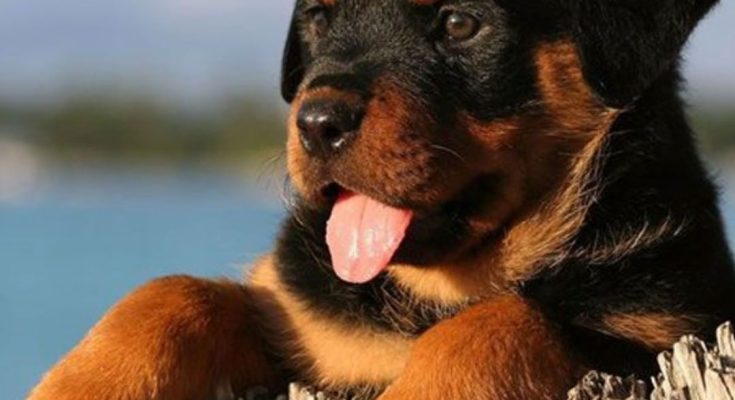
1. Exercise:
- Rottweiler puppies are active and need at least two hours of exercise daily, including walks, playtime, and mental stimulation.
- Avoid high-impact activities like running on hard surfaces or playing tug-of-war to protect their joints during growth. Opt for low-impact exercises like walking, swimming, and nose work.
2. Training and Socialization:
- Start training and socialization as early as possible. Rottweilers are intelligent and eager to learn but need consistent guidance due to their size and potential for guarding instincts.
- Enroll in puppy classes and consider private training if needed.
- Expose your puppy to various people, sights, sounds, and other animals in a positive and controlled way to ensure they develop a well-rounded temperament.
3. Diet and Feeding:
- Feed your Rottweiler puppy a high-quality puppy food formulated for large breeds.
- Puppies need to eat three to four times a day to prevent hypoglycemia. Transition to two meals a day as they mature (around 12 months).
- Measure their food and stick to a feeding schedule to prevent overfeeding and obesity.
- Avoid over-supplementing with calcium, as this can lead to growth problems.
- Monitor their growth rate to ensure they don’t grow too quickly (a recommended rate is no more than four pounds per week). Weigh your puppy every 3-4 weeks to track their progress.
- Multiple smaller meals can also help prevent bloat (GDV), a serious condition that can affect large breeds.
4. Grooming:
- Rottweilers have a short, dense coat that requires minimal grooming.
- Brush their coat at least weekly to remove loose hair and maintain healthy skin.
- Bathe them every 2-8 weeks, depending on their activity level and lifestyle.
- Regularly brush their teeth (at least twice a week) to maintain good dental hygiene.
- Trim their nails as needed.
5. Health:
- Find a reputable veterinarian and schedule regular checkups and vaccinations.
- Be aware of potential health issues in Rottweilers, such as hip and elbow dysplasia, bloat, and certain eye conditions.
- Consider feeding a puppy diet until they reach 12 months old, then switch to an adult formula.
6. Routine Care:
- Provide plenty of chew toys to redirect their chewing instincts.
- Establish a consistent daily routine for feeding, exercise, and potty breaks.
- Rottweilers can be sensitive to warm temperatures, so avoid prolonged exposure to heat and watch for signs of heat stress.
- Due to their size and strength, leash walking is recommended, and a sturdy fence is essential for a secure yard.
7. Social Needs:
- Rottweilers thrive on companionship and don’t do well being left alone for long periods. They can be prone to boredom and destructive behavior if not given enough attention and stimulation.
- Ensure they have plenty of mental stimulation through training, puzzle toys, and interactive play.
Important Considerations:
- Rottweilers require experienced owners who can provide consistent training, socialization, and leadership.
- They were originally bred for guarding and protection, so proper socialization is crucial to ensure they are good family companions.
- Be prepared for a potentially stubborn phase during adolescence. Consistency and positive reinforcement are key to successful training.
